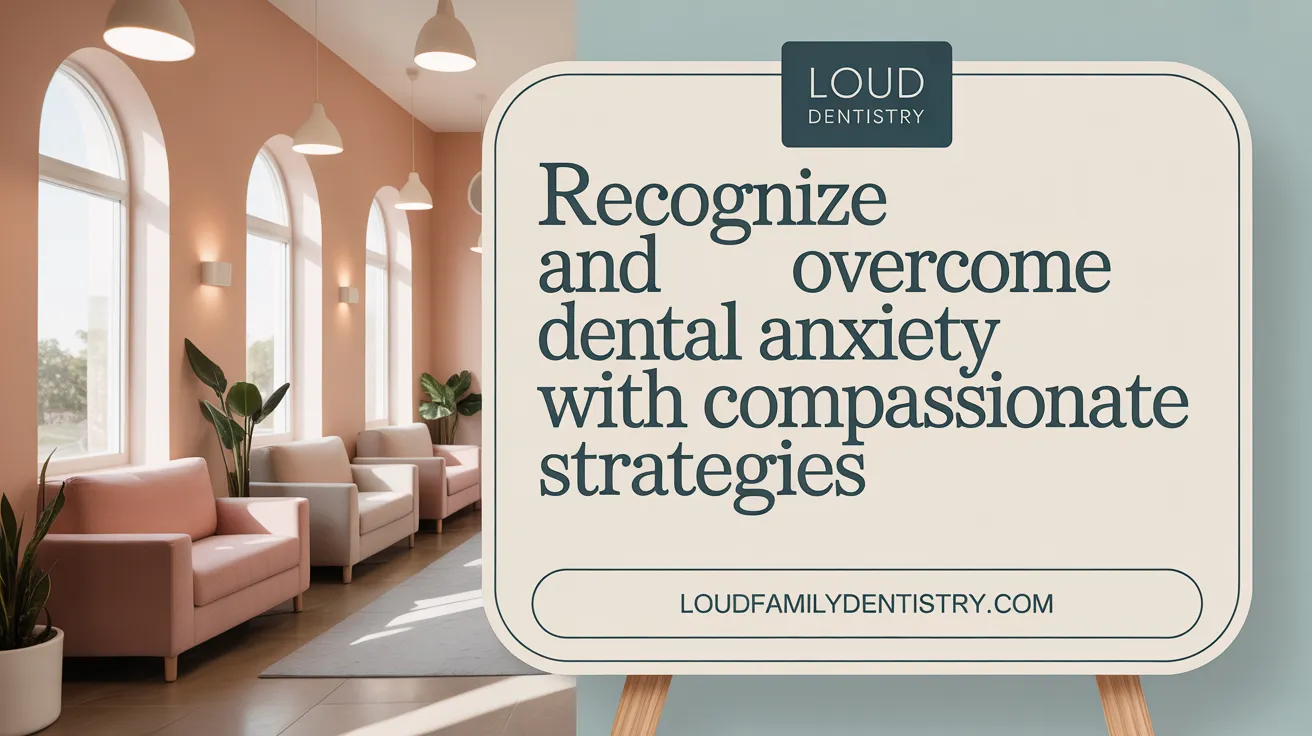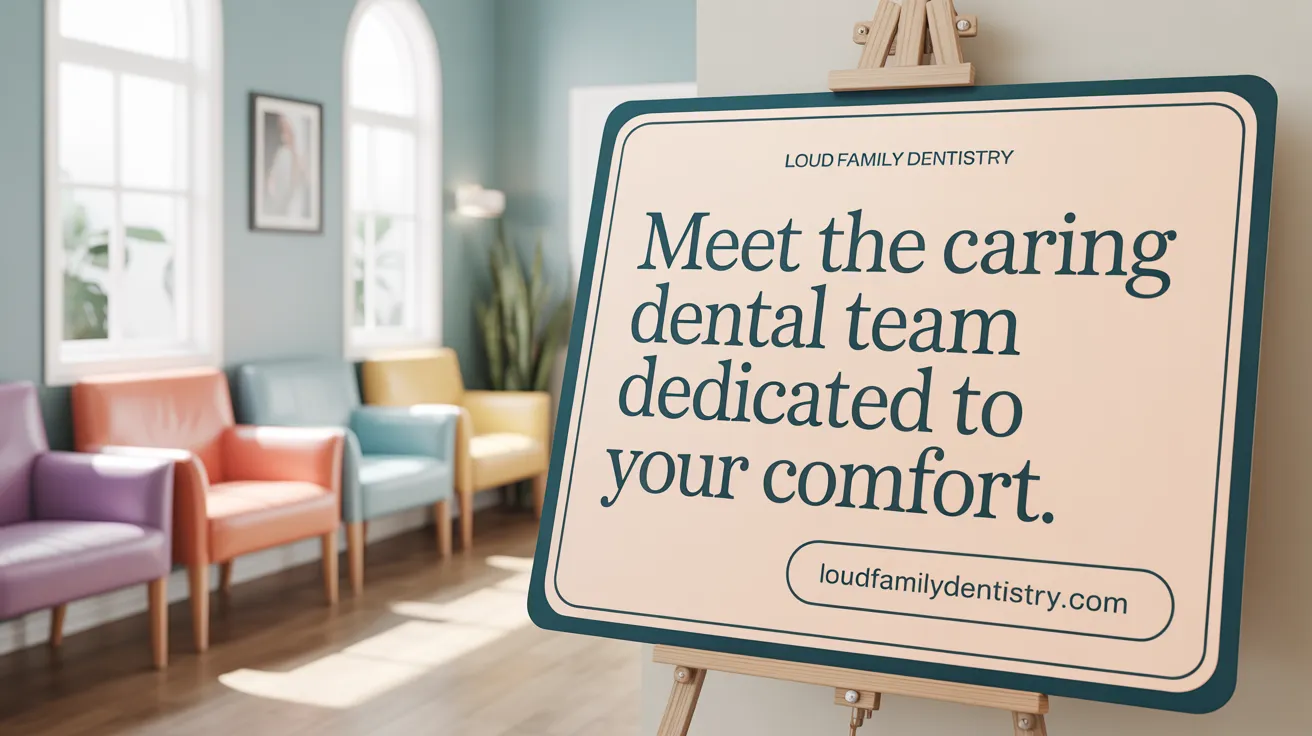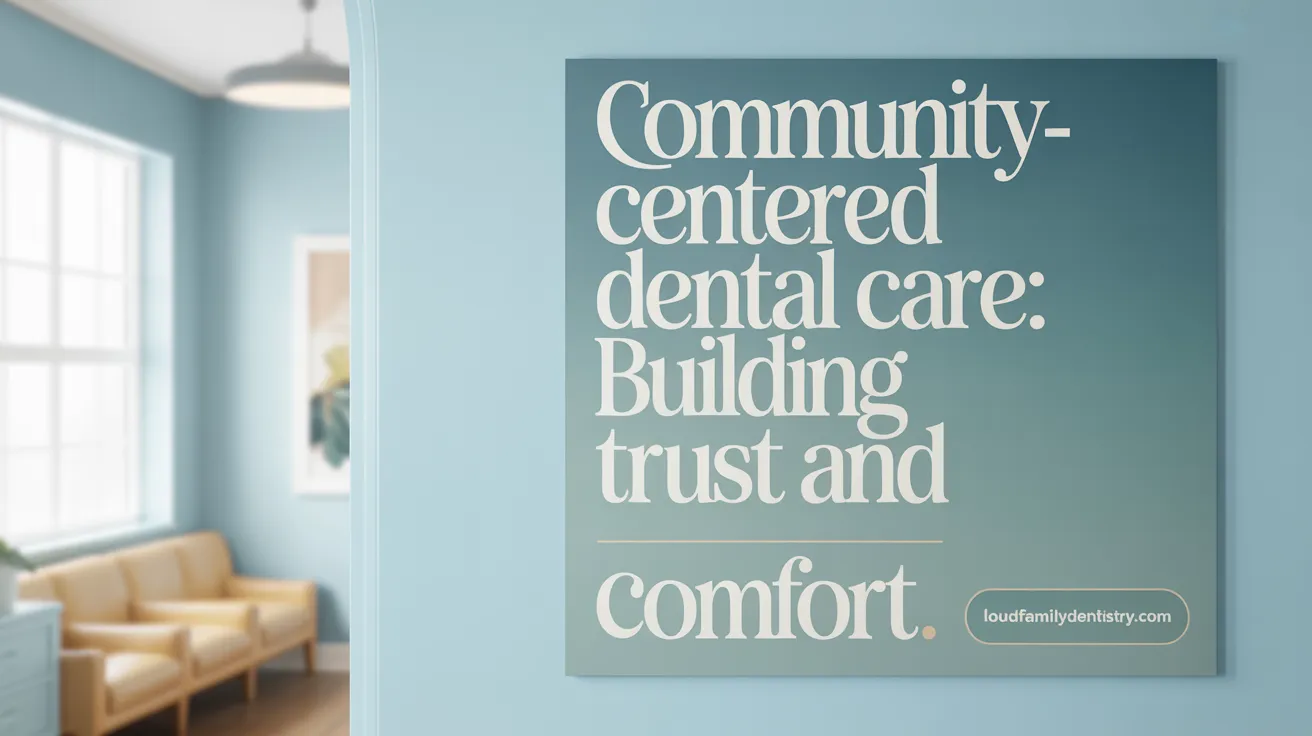Welcoming Patients with Compassion and Comfort
Community-Oriented Dental Clinics
Many dental clinics in Shreveport, Louisiana, such as Dental Associates and Loud Family Dental, emphasize serving their local communities. These clinics focus on building trusting relationships with patients by offering comprehensive services for all ages in a friendly and supportive environment.
Importance of Patient Comfort
Creating a comfortable atmosphere is a top priority for these practices. They incorporate features like ergonomic dental chairs with neck and lumbar support, soothing ambient colors, relaxing music, and amenities such as blankets, neck pillows, and distractions like TVs or headphones. Staff regularly use gentle techniques, including painless injections and stress-reducing therapies to enhance patient ease.
Introduction to Dental Anxiety
Dental anxiety affects a significant number of adults, often stemming from past negative experiences or fear of pain. Clinics support anxious patients by encouraging open communication, practicing relaxation techniques like deep breathing, and offering sedation options such as nitrous oxide or oral sedation. This compassionate and individualized approach helps patients feel calm and confident during dental visits.
Understanding and Addressing Dental Anxiety

What causes dental anxiety and phobia?
Dental anxiety is often rooted in traumatic past dental or healthcare experiences that left lasting fear. Other triggers include trauma to the head and neck and underlying mental health conditions such as generalized anxiety disorder, depression, bipolar disorder, or schizophrenia. These factors can amplify the stress patients feel when visiting a dental office. For more on Causes of dental anxiety and Understanding Dental Anxiety.
What signs indicate a patient may suffer from dental anxiety?
Typical signs of dental anxiety include physical and emotional responses such as sweating, a racing heartbeat, fainting, distress, crying, and panic. Some patients may withdraw from interaction or express their fear through humor or even aggression. Recognizing these signs early can help dental teams provide timely support. See more on Signs of dental anxiety and Dental anxiety support.
How does dental anxiety impact oral health?
Dental anxiety often causes patients to avoid regular visits, which leads to deterioration in oral health. This avoidance creates a vicious cycle: anxiety causes avoidance, which worsens dental issues, leading to more complex treatments and increased fear of dental procedures. Such avoidance can delay early detection of oral diseases, including mouth cancer and cavities, resulting in more complicated and invasive treatments down the line. Learn about the Impact of dental anxiety on oral health.
How can open communication ease dental anxiety?
Sharing fears openly with the dental team is crucial to managing anxiety. When patients communicate their concerns, dentists and staff can personalize care, offer sedation options, and adjust the environment to enhance comfort. This transparency builds trust and helps patients feel safe and supported during visits. Explore Communication with Your Dentist, Communicating fears to your dentist, and Effective communication in dental care.
What psychological techniques can help manage dental anxiety?
Several psychological methods are effective in reducing anxiety before and during dental visits. Techniques include deep breathing exercises, progressive muscle relaxation, guided imagery, and distraction methods such as listening to music or focusing on visualizations. Some practices also employ therapies like EMDR, cognitive behavioral therapy, mindfulness, hypnosis, or EFT tapping to target deeper fears, especially for patients with traumatic dental histories. Read more on Relaxation Techniques for Dental Visits, Dental anxiety support services, and Therapeutic interventions for dental anxiety in clinical practice.
By understanding the causes and signs of dental anxiety and fostering open communication paired with psychological support strategies, dental care providers in Shreveport and beyond can help patients overcome dental fears and promote healthier, more consistent dental visits. Explore local Dental care in Shreveport and patient comfort resources like Patient Comfort at Loud Family Dental.
Sedation Dentistry: Comfort Through Medical Support

What sedation options are available to anxious dental patients?
Dentistry offers several sedation choices tailored to patient needs. Nitrous oxide sedation, commonly called laughing gas, provides mild relaxation and acts quickly, allowing patients to feel calm yet awake. Oral sedation involves taking a prescribed pill before treatment to achieve a deeper state of relaxation, especially suitable for moderate anxiety. For those experiencing severe anxiety or undergoing complex procedures, intravenous (IV) sedation delivers sedation directly into the bloodstream, offering the deepest level of calm.
How is sedation dentistry safely administered?
Safety is paramount in sedation dentistry. Prior to any procedure, the dental team thoroughly reviews the patient's medical history to identify any risks or contraindications. Patients may be instructed to fast if required to reduce risks during sedation. Throughout the visit, vital signs such as heart rate and oxygen levels are closely monitored to maintain patient safety and promptly address any changes (Pre-Procedure Instructions for Sedation).
What is the recovery process after sedation?
Recovery time varies depending on the sedation used. Nitrous oxide wears off rapidly, allowing patients to resume normal activities immediately after their appointment. In contrast, oral and IV sedation have longer-lasting effects, necessitating a period of rest post-procedure. Patients who receive these forms of sedation typically require a companion to drive them home and support their recovery (Post-Sedation Recovery Guidelines.
Sedation dentistry plays a significant role in managing dental anxiety by providing a comfortable and controlled environment. When combined with skilled dental care and clear communication, these medical options help transform dental visits into less stressful experiences for anxious patients (Sedation dentistry options).
Enhancing Physical and Emotional Comfort During Visits

How do dental offices create physical comfort for patients?
Dental clinics prioritize physical comfort by incorporating ergonomic dental chairs designed with lumbar support and adjustable neck pillows. These features help alleviate pressure points during treatments, especially for those undergoing longer procedures or with chronic pain. Amenities such as heated blankets and noise-cancelling headphones further ensure patients remain comfortable throughout their visit.
What environmental features help reduce anxiety?
The dental environment plays a crucial role in reducing patient anxiety. Many practices use warm, soothing colors and soft lighting paired with relaxing background music to create a welcoming and calming atmosphere. This approach is tailored to make patients feel safe and at ease from the moment they enter the office.
What distraction and therapeutic tools assist anxious patients?
To help patients manage anxious feelings, dental offices employ various distraction methods like ceiling-mounted televisions, aromatherapy, stress balls, and weighted blankets. Innovations like the DentalVibe device are used to administer painless injections, substantially decreasing discomfort. Additionally, therapeutic interventions such as eye movement desensitization and reprocessing (EMDR), cognitive behavioral therapy, hypnosis, and mindfulness techniques are integrated to address dental anxiety effectively, providing both immediate and long-term emotional relief.
These combined strategies create a patient-centered environment that emphasizes both physical ease and emotional calm, facilitating more positive dental experiences.
The Vital Role of Dental Staff in Patient Ease

How do dental assistants help calm fearful patients?
Dental assistants play a crucial role in reducing anxiety and fear during dental visits. They do this through kind words, empathetic behavior, and offering comfort items like pillows or water. Building trusting relationships by remembering personal details about patients also helps create a welcoming environment. Patient education by knowledgeable assistants fosters understanding and confidence. For more on this, see dental assistant patient comfort strategies.
Why is effective communication important?
Clear, non-technical explanations of dental procedures and transparency about what to expect help build trust between patients and the dental team. This reduces fear and uncertainty, making the dental experience more comfortable and less intimidating. Learn more about effective communication in dental care and communicating dental fears.
Building patient-staff relationships
Long-term relationships between dental staff and patients ease fears and create a sense of security. Staff recognizing patients by name and recalling personal information enhances comfort and promotes repeat visits. Discover insights on building patient rapport and focus on patient comfort to foster trust.
Staff training and professionalism
Ongoing education and certifications in dental assisting build staff confidence and competence. Well-trained professionals communicate better and provide empathetic support, significantly reducing patient anxiety and improving the overall dental experience. Additional information is available at continuing education for dental assistants and strategies to reduce dental anxiety.
Community-Focused Care and Accessibility to Reduce Stress

How does community orientation support patient comfort?
Community-oriented dental clinics like those in Shreveport Dental Solutions in Shreveport, Louisiana, prioritize understanding the unique needs of their local populations. This approach fosters trust by creating a welcoming atmosphere right from the first patient interaction, whether that's an initial phone call or an in-office visit. By recognizing and addressing individual concerns and cultural factors, dental teams can reduce anxiety and make patients feel more valued and respected. This nurturing environment encourages patients to maintain regular dental visits, which is crucial for managing dental fear and preventing complex dental issues breaking the cycle of dental fear. This aligns with best practices in Community-oriented dental care models that emphasize patient trust and community engagement.
What role does accessibility and modern technology play?
Accessibility greatly influences patient comfort. Clinics that offer multiple convenient locations, such as those with offices in both Shreveport and Bossier City like A Brighter Smile Dental Care, plus same-day emergency care, remove barriers that might prevent timely dental visits. Advanced dental technologies, including digital X-rays, 3D surface scans, and cone beam CT imaging found at South Shreveport Dental, contribute to a smoother, more efficient patient experience. These technologies reduce procedure times, minimize discomfort, and provide clearer diagnosis and treatment plans, all of which help alleviate patient anxiety. Additionally, modern procedural options like minimally invasive techniques and sedation dentistry tailored to individual needs enhance comfort and confidence during visits.
How do clinics personalize care for diverse patient needs?
Personalized dental care acknowledges that each patient has unique fears, medical histories, and lifestyle considerations. Community clinics employ various strategies to address these. For example, sedation options ranging from nitrous oxide to IV sedation are offered to meet different levels of dental anxiety. Amenities such as heated blankets, noise-canceling headphones, and soothing environmental elements (like warm lighting and calming music) are integrated. Furthermore, therapeutic interventions — such as cognitive behavioral therapy and mindfulness techniques — are sometimes provided to support patients with deeper anxiety issues, in line with research on Therapeutic interventions for dental anxiety in clinical practice. This tailored approach ensures that everyone, from children to older adults, can receive compassionate and comfortable dental care, fostering long-term oral health and trust within the community.
Promoting Positive Dental Experiences Through Compassion and Innovation
Comfort Strategies in Dental Care
Many Shreveport dental clinics prioritize patient comfort through various thoughtful strategies. These include ergonomic chairs with lumbar support, soothing office environments with calming colors, background music, and amenities like neck pillows and blankets. Distraction techniques such as ceiling-mounted TVs, noise-canceling headphones, and aromatherapy help reduce anxiety during procedures.
Patient-Centered Care
Dentistry practices in the community emphasize compassionate care tailored to individual needs. This involves open communication where patients feel safe to share fears, allowing dental teams to customize approaches, including sedation options like nitrous oxide or oral sedation. Advanced technology ensures less invasive, more comfortable treatments.
Encouraging Communication and Support
Patients are encouraged to express dental fears openly and to bring support persons if needed. Techniques such as deep breathing, progressive muscle relaxation, and agreed signal systems during procedures foster a sense of control. These patient-focused efforts promote trust and enable more positive dental experiences, breaking the cycle of dental anxiety for many individuals.
